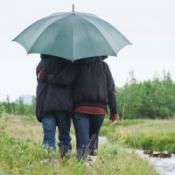 I was recently reading a blog post and noticed that someone in the comment section asked the question: “What does it mean when we refer to someone as a survivor?” We hear about “survivors” of domestic violence and “survivors” of sexual assault all the time, but what does it mean when we refer to people in this way? I thought this was a good question to explore.
I was recently reading a blog post and noticed that someone in the comment section asked the question: “What does it mean when we refer to someone as a survivor?” We hear about “survivors” of domestic violence and “survivors” of sexual assault all the time, but what does it mean when we refer to people in this way? I thought this was a good question to explore.
The description provided by the National Crime Victim Law Institute states a survivor is “a person who endures adversity, moves through it, and perseveres, or a person with resiliency who remains undefeated.” I like that definition. Below, I describe how this definition applies to the four stages that trauma survivors might experience as they heal.
Stage 1: Silence
People who experience adverse situations, such as a traumatic event involving actual or threatened danger, face incredible challenges. The initial stage following a traumatic event is often a time of silence for the victim. It’s common for recently victimized people to refuse to talk about what happened. This may be due to a number of things, including stigma, isolation, shame, guilt, confusion, or denial about the event.
A person emerging from trauma may have low self-esteem at first and may feel overwhelmed and disconnected from the rest of the world.
Stage 2: Victimhood
Eventually, the traumatized self may start to long for change as the ongoing suffering interferes with daily life tasks and a need to grow and recover begins to form. As this need grows, it allows the person to begin exploring ways to move through the trauma. According to available research, there is often a tug-of-war taking place within the individual between a need to be safe and protect emotions and a need to grow and confront the traumatic memories.
The person may feel compelled to talk openly with everyone about what happened and the suffering he or she experienced. Some people will likely be more willing than others to listen. For people working their way through the stage of victimization, having someone to listen and support them as they process the event can be critical to their ability to move forward into survivorhood. Many people find support groups helpful during this stage and may seek counseling or other support.
Stage 3: Survivorhood
Once a person processes the traumatic event and continues transitioning away from the victim experience, he or she often begins identifying as a survivor. During this stage, a person has had an opportunity to talk about his or her experience and has gained some sense of clarity. He or she may begin to identify the ways in which he/she persevered and the strengths that helped make moving forward possible. The person hasn’t forgotten the event, but he or she has a greater understanding about what the event means and the impact it has made on his or her life.
Reaching the stage of survivorhood doesn’t happen overnight. It may take months or even years to work through the victim stage and reach the point where one feels that the wounds are healing and a sense of relief is possible. Also, the process of healing is not linear. Survivors take one step forward and two steps back sometimes, and moving through it all and persevering may coincide with feeling hopeful one day and damaged and wounded the next. People in the survivor stage tend to spend less and less time feeling wounded as they continue learning new tools and recognizing themselves as resilient.
Stage 4: Thriving and Transcendence
Most people I’ve worked with seem content reaching the stage of survivorhood. They feel like they are managing challenges better and have a greater awareness about themselves and their experiences. Other people, The person hasn’t forgotten the event, but he or she has a greater understanding about what the event means and the impact it has made on his or her life.however, have told me they’re not done growing, and some of them have even said they don’t want to be called a survivor.
This group becomes the thriving group, people who transformed their experiences into a meaningful personal narrative and will not be defined by their adversity. They feel healed and safe, and take appropriate risks in seeking connection with others, such as asking a new neighbor out for coffee. They don’t feel the need to tell their stories unless it benefits someone else. “Thrivers” feel motivated to take part in the community and may seek out volunteer opportunities or other ways to help others.
Of course, this is only one model of healing and one definition of what it means to be a survivor. Every person who experiences a distressing event may have his or her own ideas about what it means to pull through a traumatic time or event.
Reference:
Matsakis, A. (2003). The rape recovery handbook: Step-by-step help for survivors of sexual assault. Oakland, CA: New Harbinger.

The preceding article was solely written by the author named above. Any views and opinions expressed are not necessarily shared by GoodTherapy.org. Questions or concerns about the preceding article can be directed to the author or posted as a comment below.

 The Most Important Thing You Can Say to a Sex Abuse Survivor
The Most Important Thing You Can Say to a Sex Abuse Survivor Wounded Attachment: Relationships of Survivors of Childhood Sexual Assault
Wounded Attachment: Relationships of Survivors of Childhood Sexual Assault The Story Domestic Violence Statistics Don’t Tell
The Story Domestic Violence Statistics Don’t Tell

